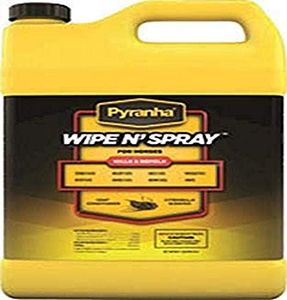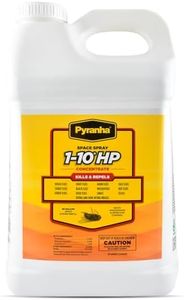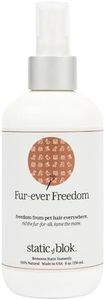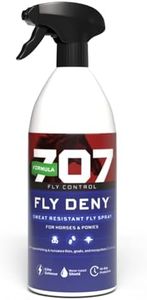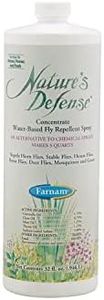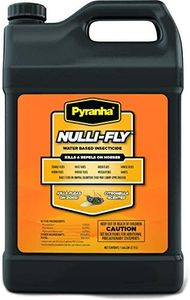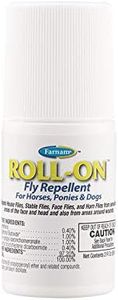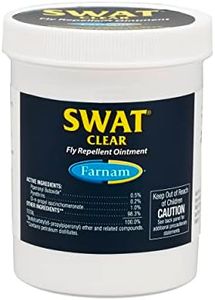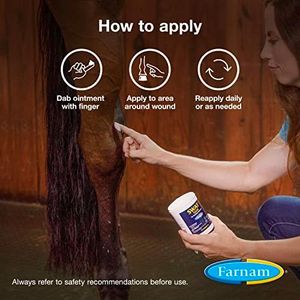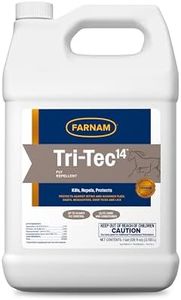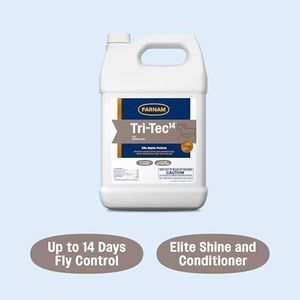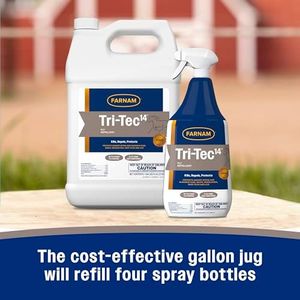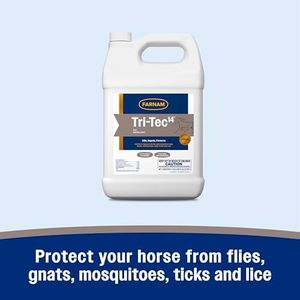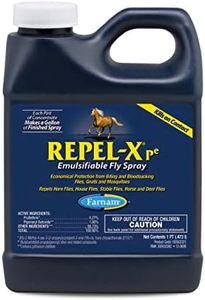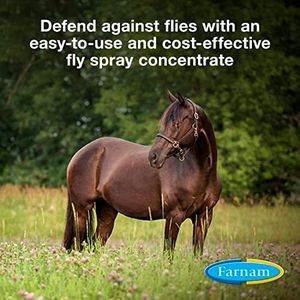10 Best Horse Fly Repellents 2025 in the United States
Winner
Absorbine UltraShield EX 128oz Insecticide, Kills & Repels Flies, Mosquitoes, Ticks, Fleas, Lice, Use on Horses, Dogs, Premises
Absorbine UltraShield EX is a robust horse-fly repellent that also targets over 70 other pests including mosquitoes, ticks, and fleas. One of its key strengths is its formulation; it is ready-to-use and water-based, eliminating the need for mixing before application. This makes it easy to apply on horses, dogs, and even on premises like barns. Additionally, the product boasts weatherproof protection for up to 17 days, which is enhanced by UltraBond Technology, making it effective even in varying weather conditions.
Most important from
3302 reviews
Pyranha 001GWIPEG 068022 Wipe N'Spray Fly Protection Spray for Horses, 1 Gallon,Yellow
The Pyranha Wipe N'Spray Fly Protection Spray is a practical solution for horse owners looking to protect their animals from a range of pests including flies, mosquitoes, gnats, fleas, and ticks. The product comes in a sizable 1-gallon bottle, making it suitable for long-term use. The spray is ready to use right out of the bottle, which adds to its convenience.
Most important from
1619 reviews
Top 10 Best Horse Fly Repellents 2025 in the United States
Winner
9.8 score
Absorbine UltraShield EX 128oz Insecticide, Kills & Repels Flies, Mosquitoes, Ticks, Fleas, Lice, Use on Horses, Dogs, Premises
Absorbine UltraShield EX 128oz Insecticide, Kills & Repels Flies, Mosquitoes, Ticks, Fleas, Lice, Use on Horses, Dogs, Premises
Chosen by 1109 this week
Pyranha 001GWIPEG 068022 Wipe N'Spray Fly Protection Spray for Horses, 1 Gallon,Yellow
Pyranha 001GWIPEG 068022 Wipe N'Spray Fly Protection Spray for Horses, 1 Gallon,Yellow
PYRANHA HP CONCENTRATE 2.5 GAL
PYRANHA HP CONCENTRATE 2.5 GAL
Our technology thoroughly searches through the online shopping world, reviewing hundreds of sites. We then process and analyze this information, updating in real-time to bring you the latest top-rated products. This way, you always get the best and most current options available.


